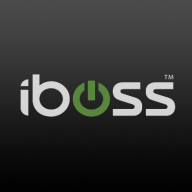


F5 BIG-IP Access Policy Manager (APM) and Check Point Harmony SASE compete in secure network access solutions. Check Point Harmony SASE holds an advantage due to its wide range of features that many users find worth the investment.
Features: F5 BIG-IP APM is known for its robust platform capable of handling complex tasks, making it suitable for sectors such as banking and insurance. It is valued for SSL VPN capabilities, ease of integration, and strong authentication. Check Point Harmony SASE offers notable benefits with zero-trust network access, anti-phishing features, and flexible user access, greatly enhancing security for remote users.
Room for Improvement: F5 BIG-IP APM needs to enhance its cloud offerings, reporting, automation, and product integration. Technical support improvements are necessary for quicker response times. Check Point Harmony SASE requires better reporting, analytics, third-party tool integration, and enhanced threat detection. Improved user guidance and optimization for non-tech users are also desired.
Ease of Deployment and Customer Service: F5 BIG-IP APM is mainly used in on-premises and hybrid clouds, with varied support reviews pointing to a need for faster service. Check Point Harmony SASE provides flexible deployment options and generally satisfactory customer service, emphasizing ease in deployment across cloud environments.
Pricing and ROI: F5 BIG-IP APM is seen as costly with a complex pricing model, yet it delivers a high ROI through reliable access and time savings. Check Point Harmony SASE offers a fair price structure with advanced security features justifying the cost, appealing to larger organizations with flexible pricing and value.
| Product | Market Share (%) |
|---|---|
| iboss | 2.4% |
| Check Point Harmony SASE (formerly Perimeter 81) | 2.7% |
| F5 BIG-IP Access Policy Manager (APM) | 1.4% |
| Other | 93.5% |

| Company Size | Count |
|---|---|
| Small Business | 6 |
| Midsize Enterprise | 6 |
| Large Enterprise | 5 |
| Company Size | Count |
|---|---|
| Small Business | 53 |
| Midsize Enterprise | 19 |
| Large Enterprise | 14 |
| Company Size | Count |
|---|---|
| Small Business | 9 |
| Midsize Enterprise | 1 |
| Large Enterprise | 9 |
Iboss offers a comprehensive cloud-based security platform valued for its scalability and autonomous features, ensuring robust security with easy deployment and management capabilities.
Renowned for its robust security architecture, Iboss integrates seamlessly within diverse networks, delivering efficient granular filtering and advanced content categorization. Its single pane of glass console provides ease of management, allowing rapid scalability suitable for rapidly deploying environments. Operates in BYOD setups due to inline filtering without device installation. Integration with cloud-based applications enhances user control, and features like SASE, SSL inspection, and ChatGPT risk protection stand as highlights. Despite its strengths, users have pointed out areas for enhancement like direct navigation in reports, SSL decryption, and better cloud integration while having room to improve data loss prevention.
What are the most important features of Iboss?The usage of Iboss spans educational institutions, specifically K-12, to enforce internet policies, protect data, and support remote work environments. It provides web filtering and security frameworks to ensure safe browsing. Its platform-as-a-service model offers flexibility for both cloud-based and on-premises requirements, integrating seamlessly to deliver enhanced security features suitable for various deployment needs including zero trust, CASB, and network security for work-from-home setups.
Check Point Harmony SASE, formerly Perimeter 81, offers robust security features like split tunneling, MFA, and Zero Trust Network Access focused on secure remote access and optimized connectivity for remote teams.
Check Point Harmony SASE delivers advanced security through a user-friendly interface, efficient VPN connections, and a centralized management console. It enhances security with real-time threat intelligence from ThreatCloud and traffic management via built-in optimization. Firewall as a Service and Secure Web Gateway safeguard against unauthorized access and phishing. While users seek enhanced networking customizations and better integration with identity providers, there's an emphasis on improving reporting, real-time analytics, and policy management. Requests also include a Chrome extension, traffic balancing, and simplified configuration to address some resource-intensive aspects.
What are the key features of Check Point Harmony SASE?
How can organizations benefit from using Check Point Harmony SASE?
Check Point Harmony SASE is used across industries for secure remote access and connectivity, protecting sensitive data, and managing access to corporate resources. It is ideal for those with hybrid cloud models and requires comprehensive security measures combined with existing IT infrastructures to meet specific industry demands.
F5 BIG-IP Access Policy Manager (APM) is an access management proxy solution for managing global access to the enterprise networks, cloud providers, applications, and application programming interfaces (APIs). Through a single management interface, BIG-IP APM consolidates remote, mobile, network, virtual, and web access.
BIG-IP APM can also serve as a bridge between modern and classic authentication and authorization protocols and methods. For applications which are unable to support modern authentication and authorization protocols, like SAML and OAuth with OIDC, but which do support classic authentication methods, BIG-IP APM converts user credentials to the appropriate authentication standard supported by the application.
BIG-IP APM Benefits:
BIG-IP APM Features:
Reviews from Real Users
Below are some reviews and helpful feedback written by BIG-IP APM users.
Mahmmoud Rabie, Senior Site Reliability Engineer, writes that BIG-IP APM is "A highly stable solution for load balancing, but the initial setup is complex."
Clyde Livingston, Senior Process Specialist at Telstra, says that BIG-IP APM is "Easy to use, useful access remotely, but lacking stability."
Chris Lam, Senior Solution Consultant at Macroview Telecom Limited, states that BIG-IP APM is "Useful for remote access VPN and VPI integration with VMware.
We monitor all Secure Web Gateways (SWG) reviews to prevent fraudulent reviews and keep review quality high. We do not post reviews by company employees or direct competitors. We validate each review for authenticity via cross-reference with LinkedIn, and personal follow-up with the reviewer when necessary.